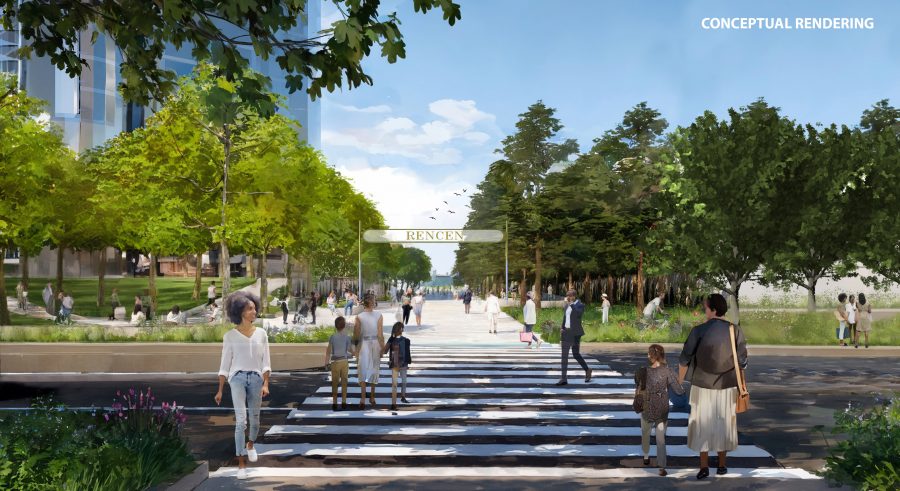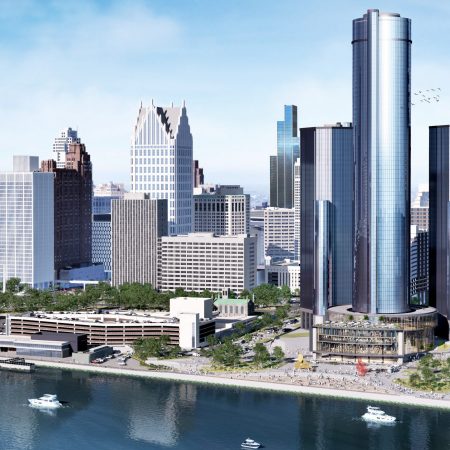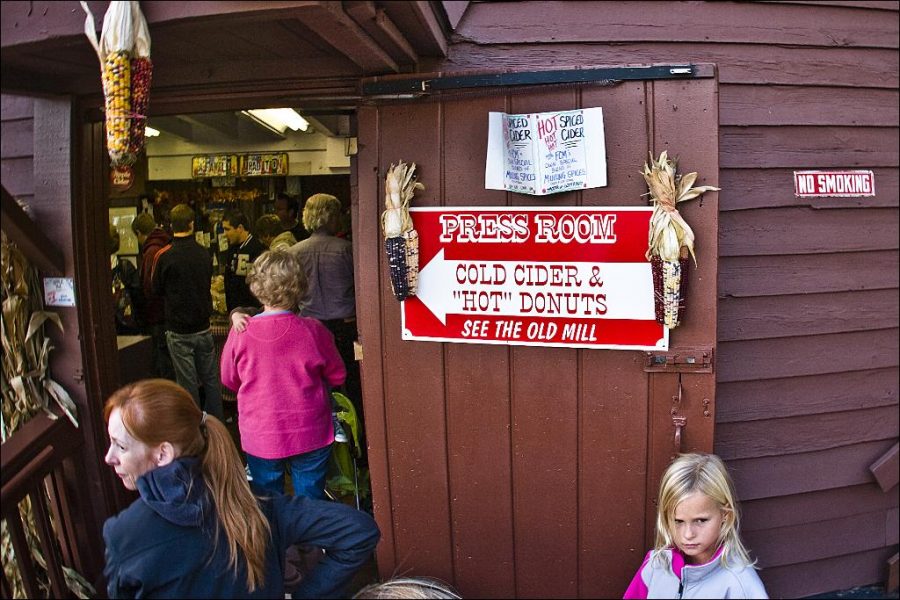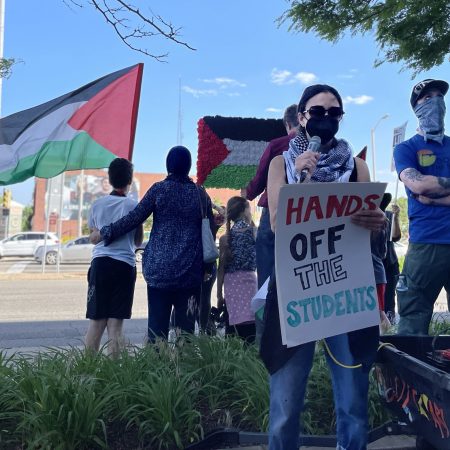GM, Bedrock propose new vision for RenCen; call for demolition of 2 towers
General Motors (GM) and Bedrock have proposed a $1.6 billion redevelopment of the Renaissance Center that would forever alter downtown Detroit’s iconic skyline.
The project — which calls for the demolition of the two towers closest to the riverfront, as well as ground floor retail and showroom space in the complex — aims to “right size” the RenCen’s footprint by redeveloping the space into a six-acre riverfront park and vibrant entertainment district.
Towers 300 and 400 would be demolished under the proposal. The RenCen’s central tower would remain as a hotel, while the remaining two towers would be renovated for residential and office space.
Completed in 1976, the Renaissance Center is Michigan’s tallest building and a cornerstone of Detroit’s skyline. It was originally built during Detroit Mayor Coleman Young’s administration, as part of an effort to revitalize downtown Detroit. General Motors acquired the site in 1996 and has since invested over $1 billion in renovations.
Officials say the project seeks to adapt the complex to modern demands, addressing declining office space needs and increasing interest in urban residential and mixed-use developments.
“This iconic landmark’s future is important to Detroit and Michigan, and our shared vision with General Motors ensures that its redevelopment aligns with Detroit’s economic advancement,” said Kofi Bonner, CEO of Bedrock, in a statement.

Project highlights include:
- A new pedestrian promenade that connects to the riverfront
- Removal of the ground-level base of the complex and the two office towers nearest the river
- Redevelopment of remaining three towers into “a mix of hospitality and housing”
- Turning reclaimed land into signature public spaces
- Reconfiguring the site to allow direct access to the buildings and the riverfront
Funding and next steps
Bedrock and GM have committed to funding the majority of the project, with the remainder contingent on public financing, including potential support from Detroit’s Downtown Development Authority.
The redevelopment plan will be presented to local and state leaders in the coming weeks to seek public support and legislative approval for funding. Demolition is expected to begin within two years, with the project being carried out in phases.
GM plans to relocate its headquarters to Bedrock’s Hudson’s Detroit site by early 2026.
Neither Bedrock or GM could be reached for comment about the proposal on Monday.
Trusted, accurate, up-to-date.
WDET strives to make our journalism accessible to everyone. As a public media institution, we maintain our journalistic integrity through independent support from readers like you. If you value WDET as your source of news, music and conversation, please make a gift today.
The post GM, Bedrock propose new vision for RenCen; call for demolition of 2 towers appeared first on WDET 101.9 FM.










